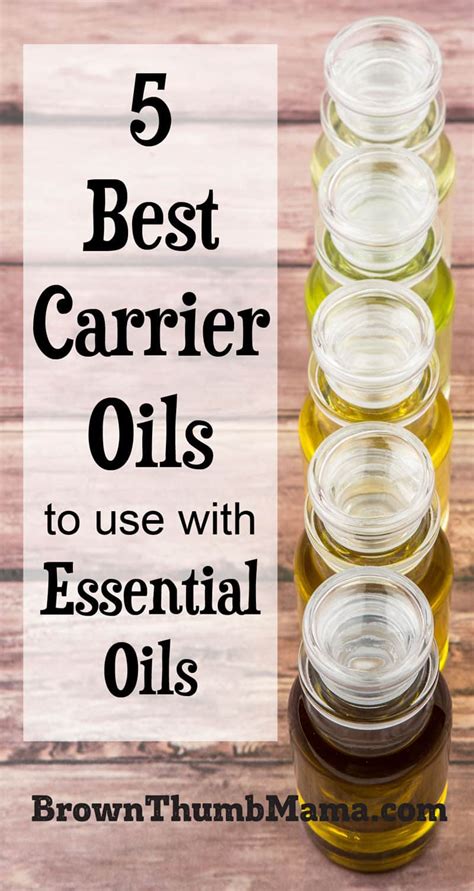Carrier oils, also known as base oils or vehicle oils, are the foundation of aromatherapy and essential oil use. They are typically plant-based oils that are used to dilute essential oils before applying them to the skin. This is because essential oils are highly concentrated and can cause irritation or burns if applied undiluted.

Carrier oils help to disperse essential oils evenly over the skin and prevent them from evaporating too quickly. They also help to moisturize the skin and provide additional nutrients.
There are many different carrier oils available, each with its own unique properties. Some of the most popular carrier oils include:
- Jojoba oil: Jojoba oil is a liquid wax that is very similar to the skin’s natural sebum. It is easily absorbed and does not leave a greasy residue. Jojoba oil is a good choice for all skin types, including oily and acne-prone skin.
- Sweet almond oil: Sweet almond oil is a light, emollient oil that is rich in vitamins A, E, and D. It is a good choice for sensitive skin and is often used in baby care products.
- Fractionated coconut oil: Fractionated coconut oil is a light, clear oil that is derived from coconut oil. It is non-comedogenic, meaning that it will not clog pores. Fractionated coconut oil is a good choice for all skin types, including oily and acne-prone skin.
- Grapeseed oil: Grapeseed oil is a light, dry oil that is rich in antioxidants. It is a good choice for oily and acne-prone skin.
- Sunflower oil: Sunflower oil is a light, non-greasy oil that is rich in vitamin E. It is a good choice for all skin types, including dry and sensitive skin.
- Olive oil: Olive oil is a heavy, emollient oil that is rich in vitamins A, E, and K. It is a good choice for dry and mature skin.
- Argan oil: Argan oil is a rich, golden oil that is native to Morocco. It is rich in vitamins A, E, and C, and is known for its anti-aging properties. Argan oil is a good choice for all skin types, including dry and mature skin.
How to Choose a Carrier Oil
When choosing a carrier oil, there are a few things to keep in mind:
- Skin type: Some carrier oils are better suited for certain skin types than others. For example, jojoba oil is a good choice for all skin types, while olive oil is a good choice for dry and mature skin.
- Purpose: Different carrier oils have different properties. For example, grapeseed oil is a good choice for oily and acne-prone skin, while argan oil is a good choice for dry and mature skin.
- Personal preference: Ultimately, the best carrier oil for you is the one that you like the feel of and the smell of.
How to Use Carrier Oils
Carrier oils can be used in a variety of ways, including:
- Diluting essential oils: Carrier oils are used to dilute essential oils before applying them to the skin. This helps to prevent irritation and burns.
- Creating massage oils: Carrier oils can be used to create massage oils by adding essential oils to them. Massage oils can be used to relax the muscles, relieve stress, and improve circulation.
- Making body scrubs: Carrier oils can be used to make body scrubs by adding sugar or salt to them. Body scrubs can help to exfoliate the skin and remove dead skin cells.
- Creating bath oils: Carrier oils can be used to create bath oils by adding them to a warm bath. Bath oils can help to relax the body and mind.
Benefits of Carrier Oils
Carrier oils offer a number of benefits, including:
- Moisturizing: Carrier oils help to moisturize the skin and prevent it from becoming dry and flaky.
- Nourishing: Carrier oils are rich in vitamins, minerals, and antioxidants that can help to nourish the skin.
- Protecting: Carrier oils help to protect the skin from the sun’s harmful UV rays and other environmental pollutants.
- Soothing: Carrier oils can help to soothe the skin and reduce inflammation.
- Promoting relaxation: Carrier oils can help to promote relaxation and reduce stress.
FAQs
Q: What is the difference between a carrier oil and an essential oil?
A: Carrier oils are plant-based oils that are used to dilute essential oils before applying them to the skin. Essential oils are highly concentrated and can cause irritation or burns if applied undiluted.
Q: Can I use carrier oils on my face?
A: Yes, you can use carrier oils on your face. However, it is important to choose a carrier oil that is suitable for your skin type. For example, jojoba oil is a good choice for all skin types, while olive oil is a good choice for dry and mature skin.
Q: How do I dilute essential oils with carrier oils?
A: The recommended dilution ratio for essential oils is 2-3 drops of essential oil to 1 ounce of carrier oil. However, you may need to adjust the dilution ratio depending on the essential oil and the desired effect.
Q: Can I use carrier oils without essential oils?
A: Yes, you can use carrier oils without essential oils. Carrier oils are beneficial for the skin on their own and can be used as a moisturizer, massage oil, or bath oil.
Conclusion
Carrier oils are an essential part of aromatherapy and essential oil use. They help to dilute essential oils, moisturize the skin, and provide additional nutrients. When choosing a carrier oil, it is important to consider your skin type and the desired effect.
